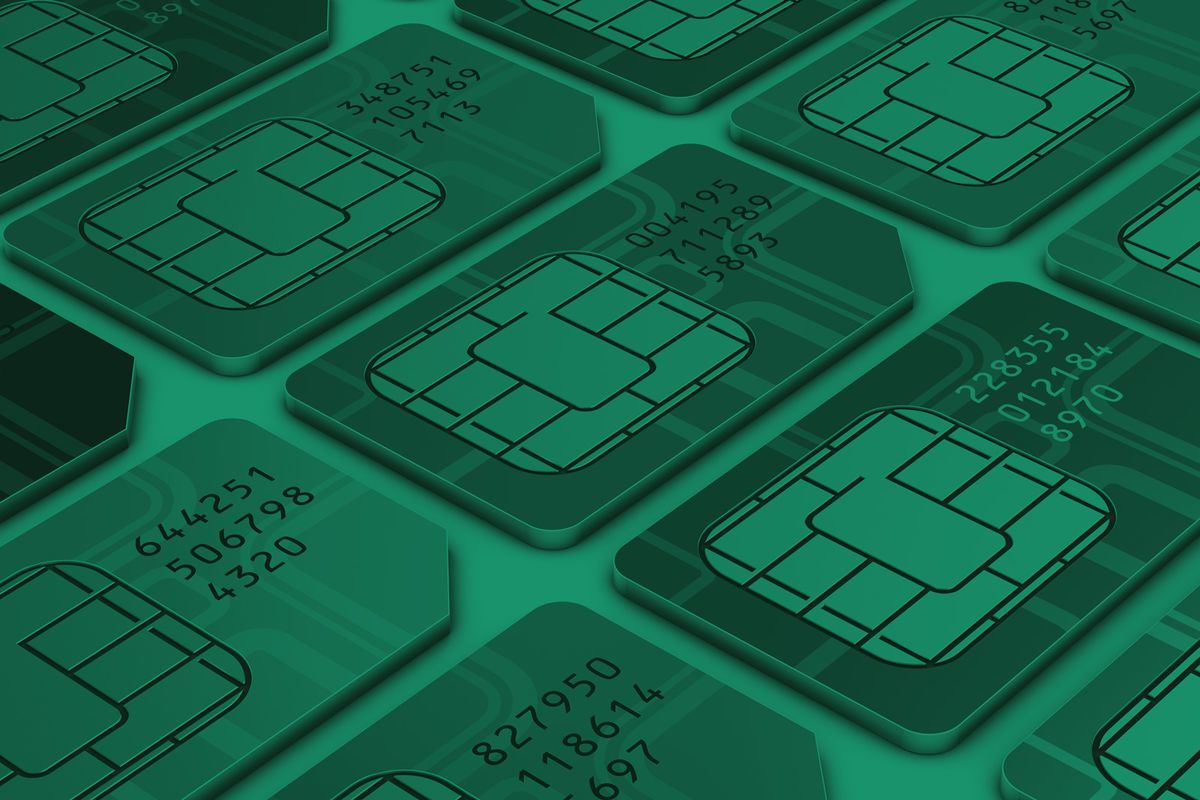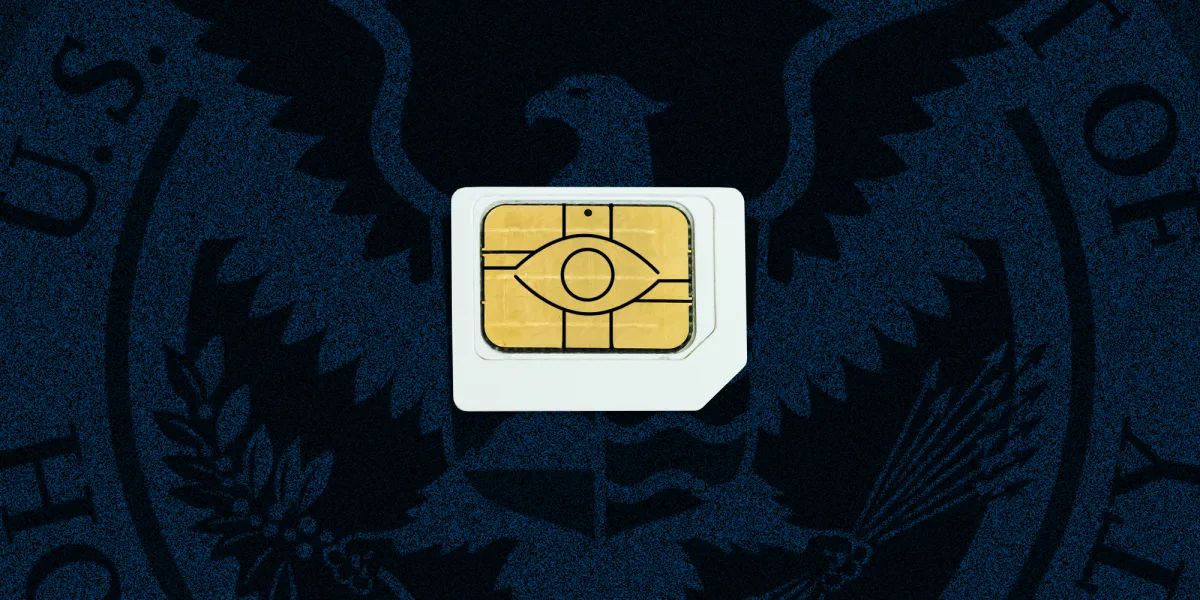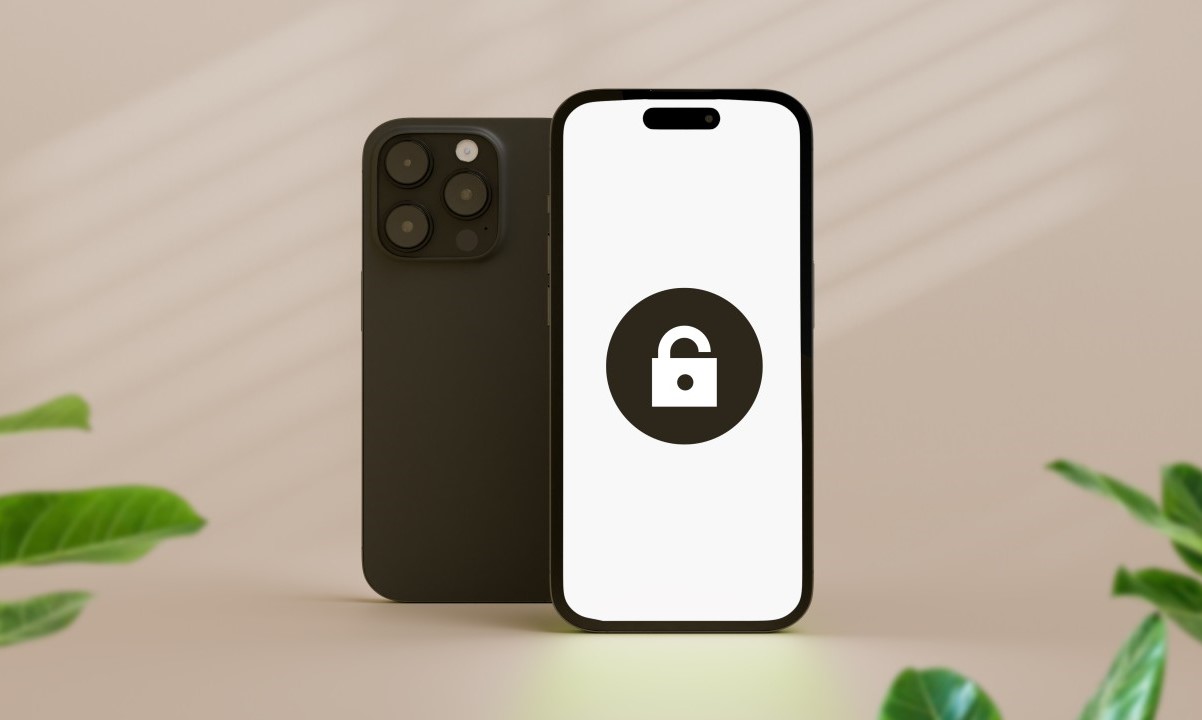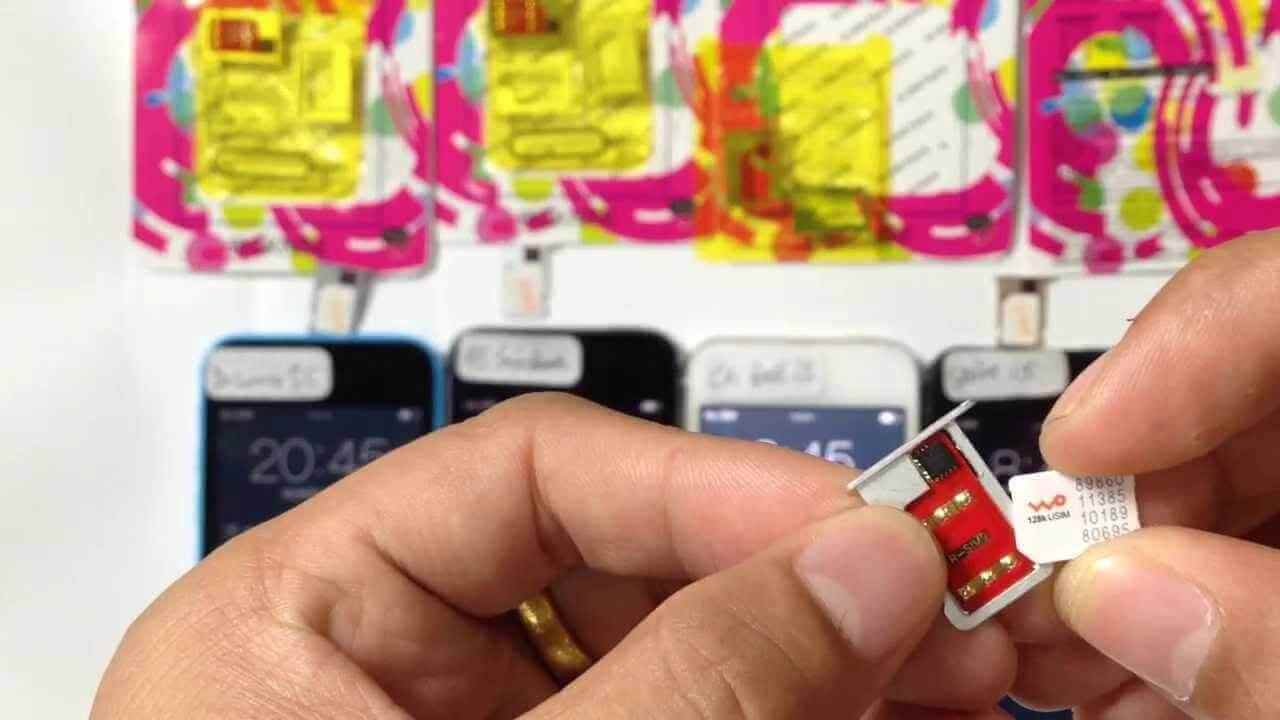Introduction
In today's digital age, our mobile devices have become an integral part of our daily lives. From staying connected with loved ones to managing our professional commitments, the reliance on smartphones and other mobile devices is undeniable. However, with the convenience and connectivity they offer, there comes a pressing need for safeguarding the security and privacy of our personal information.
One of the potential threats that mobile device users face is SIM card cloning. This illicit practice poses a significant risk to individuals, as it allows unauthorized parties to gain access to sensitive data and even assume control of a victim's mobile identity. Understanding the intricacies of SIM card cloning is crucial for taking proactive measures to protect against this form of cybercrime.
As we delve into the process of SIM card cloning, it is essential to recognize the gravity of its implications. By shedding light on the mechanics of this illicit activity, we can equip ourselves with the knowledge necessary to fortify our defenses and mitigate the associated risks. Let's embark on a journey to unravel the complexities of SIM card cloning and explore effective strategies for safeguarding our mobile identities.
What is SIM Card Cloning?
SIM card cloning is a malicious practice wherein a perpetrator creates a duplicate SIM card that shares the same identity as the original. This unauthorized replication allows the cloned SIM card to effectively impersonate the legitimate one, thereby gaining access to the associated mobile network and the sensitive information transmitted through it.
The cloned SIM card can effectively intercept incoming calls and messages intended for the original device, granting the perpetrator unrestricted access to the victim's communications and potentially sensitive data. This unauthorized access not only compromises the victim's privacy but also exposes them to various forms of exploitation, including identity theft and financial fraud.
It's important to note that SIM card cloning is not limited to replicating the physical SIM card itself; it also involves copying the unique identifier, known as the International Mobile Subscriber Identity (IMSI), which is integral to authenticating the device on the mobile network. By obtaining this crucial identifier, the perpetrator can effectively create a duplicate SIM card that mirrors the original, enabling them to exploit the victim's mobile identity.
This illicit practice poses a significant threat to individuals, as it undermines the integrity of their mobile communications and jeopardizes the security of their personal information. The repercussions of SIM card cloning extend beyond mere inconvenience, potentially leading to severe financial losses and reputational damage for the victim.
In essence, SIM card cloning is a form of cybercrime that exploits vulnerabilities in the mobile network infrastructure to perpetrate fraudulent activities. By gaining an understanding of this nefarious practice, individuals can take proactive measures to fortify their defenses and mitigate the risks associated with SIM card cloning.
How Does SIM Card Cloning Work?
SIM card cloning exploits vulnerabilities in the authentication process and the GSM (Global System for Mobile Communications) technology used in mobile networks. The process begins with the perpetrator obtaining the IMSI (International Mobile Subscriber Identity) number associated with the target's SIM card. This unique identifier is crucial for authenticating the device on the mobile network.
The perpetrator can acquire the IMSI through various means, including insider access to telecommunications companies or by leveraging sophisticated hacking techniques to intercept the communication between the mobile device and the network. Once the IMSI is obtained, the perpetrator can proceed with the cloning process.
The next step involves programming a blank SIM card with the stolen IMSI, effectively creating a duplicate SIM card that mirrors the original. This cloned SIM card is then inserted into a separate device, such as an illicitly acquired mobile phone, which can now access the mobile network using the victim's mobile identity.
As a result, the cloned SIM card can intercept incoming calls and messages intended for the original device, as the mobile network recognizes it as a legitimate subscriber. This unauthorized access grants the perpetrator the ability to eavesdrop on communications, monitor sensitive information, and even engage in illicit activities using the victim's mobile identity.
It's important to note that SIM card cloning does not require physical possession of the target's SIM card. The process can be executed remotely, making it particularly insidious. Once the cloning is successful, the victim may remain unaware of the breach until they experience unusual network behavior, unauthorized account access, or suspicious activity linked to their mobile identity.
The ramifications of SIM card cloning are far-reaching, encompassing privacy violations, financial fraud, and even potential legal implications for the victim. By exploiting this vulnerability in the mobile network infrastructure, perpetrators can perpetrate a wide range of fraudulent activities, underscoring the critical need for robust security measures to safeguard against SIM card cloning.
In essence, SIM card cloning leverages technical loopholes to replicate a victim's mobile identity, posing a significant threat to their privacy and security. Understanding the intricacies of this illicit practice is paramount for individuals to fortify their defenses and mitigate the risks associated with SIM card cloning.
Risks and Implications of SIM Card Cloning
SIM card cloning poses a myriad of risks and far-reaching implications that can profoundly impact individuals and organizations. Understanding these risks is essential for comprehending the gravity of this illicit practice and its potential ramifications.
Privacy Breach
SIM card cloning compromises the privacy of the victim by granting unauthorized access to their mobile communications. Perpetrators can intercept sensitive information, including personal conversations, text messages, and confidential data, leading to a blatant invasion of privacy. This breach can have profound emotional and psychological effects on the victim, causing distress and a sense of vulnerability.
Identity Theft
The cloned SIM card allows perpetrators to assume the victim's mobile identity, paving the way for identity theft and fraudulent activities. From unauthorized access to personal accounts to perpetrating financial fraud using the victim's mobile credentials, the implications of identity theft resulting from SIM card cloning are far-reaching and can lead to severe financial losses and reputational damage.
Communication Interception
By intercepting incoming calls and messages intended for the victim, perpetrators can eavesdrop on sensitive communications, gather confidential information, and potentially exploit it for malicious purposes. This interception not only violates the confidentiality of the victim's communications but also exposes them to the risk of sensitive information being used against their best interests.
Financial Fraud
SIM card cloning can be leveraged to perpetrate various forms of financial fraud, including unauthorized access to the victim's financial accounts, fraudulent transactions, and identity-related fraud. The financial implications of such fraudulent activities can be devastating, leading to substantial monetary losses and potential legal repercussions for the victim.
Reputational Damage
The ramifications of SIM card cloning extend beyond financial losses, encompassing potential reputational damage for the victim. Perpetrators can engage in illicit activities using the victim's mobile identity, tarnishing their reputation and subjecting them to unwarranted suspicion and scrutiny.
Legal Consequences
Victims of SIM card cloning may face legal implications stemming from the illicit activities perpetrated using their mobile identity. From fraudulent transactions to unauthorized access to sensitive information, the victim may find themselves embroiled in legal disputes and investigations, adding a layer of complexity and stress to an already challenging situation.
In essence, the risks and implications of SIM card cloning are multifaceted and can have profound effects on the victim's privacy, financial security, and overall well-being. By comprehending these risks, individuals can take proactive measures to safeguard their mobile identities and mitigate the potential fallout of SIM card cloning.
How to Protect Against SIM Card Cloning
Protecting against SIM card cloning necessitates a proactive approach to fortify the security of mobile devices and mitigate the vulnerabilities exploited by perpetrators. By implementing robust security measures and staying vigilant, individuals can significantly reduce the risk of falling victim to SIM card cloning.
Enable SIM Card Locking
Enabling the PIN (Personal Identification Number) or PUK (Personal Unblocking Key) lock on the SIM card adds an additional layer of security. This feature requires a unique code to be entered when the device is powered on or the SIM card is inserted, preventing unauthorized access and thwarting potential cloning attempts.
Regularly Monitor Account Activity
Vigilantly monitoring account activity, including call logs, messages, and data usage, can help individuals detect unusual patterns or unauthorized access linked to their mobile identity. Any discrepancies or suspicious behavior should be promptly reported to the mobile service provider for further investigation.
Secure Mobile Devices
Securing mobile devices with robust passwords, biometric authentication, and encryption can mitigate the risk of unauthorized access. Additionally, individuals should refrain from sharing their mobile devices with strangers or leaving them unattended in vulnerable environments.
Exercise Caution with Personal Information
Being cautious with personal information, such as the IMSI number and other sensitive details, is crucial for thwarting potential SIM card cloning attempts. Individuals should refrain from sharing such information indiscriminately and remain vigilant against social engineering tactics employed by perpetrators.
Stay Informed and Updated
Remaining informed about the latest security threats and updates in mobile device technology is essential. Regularly updating device software, installing security patches, and staying abreast of emerging security best practices can bolster defenses against evolving cloning techniques.
Report Suspicious Activity
Promptly reporting any suspicious activity, such as unexpected network behavior or unauthorized access, to the mobile service provider is vital. Timely intervention can prevent further exploitation of the victim's mobile identity and facilitate the investigation of potential cloning attempts.
Employ Mobile Security Solutions
Leveraging reputable mobile security solutions, such as anti-malware applications and SIM card protection services, can provide an added layer of defense against cloning attempts and other forms of mobile-related cyber threats.
By adopting a proactive stance and implementing these protective measures, individuals can significantly mitigate the risk of falling victim to SIM card cloning. Safeguarding mobile identities is paramount in the digital landscape, and staying vigilant against potential threats is crucial for maintaining the security and integrity of personal information.
Conclusion
In conclusion, the prevalence of SIM card cloning poses a pervasive threat to the security and privacy of individuals in the digital age. The illicit practice of replicating a victim's mobile identity through unauthorized means not only compromises their privacy but also exposes them to a myriad of risks, including identity theft, financial fraud, and reputational damage.
Understanding the mechanics of SIM card cloning is paramount for individuals to fortify their defenses and mitigate the associated risks effectively. By comprehending the vulnerabilities exploited by perpetrators and the potential implications of cloning, individuals can adopt proactive measures to safeguard their mobile identities.
The risks and implications of SIM card cloning extend beyond mere inconvenience, encompassing profound privacy violations, financial repercussions, and potential legal entanglements for the victim. From intercepting sensitive communications to perpetrating fraudulent activities using the victim's mobile identity, the ramifications of cloning are far-reaching and can have lasting effects.
To protect against SIM card cloning, individuals are encouraged to enable SIM card locking, monitor account activity vigilantly, secure their mobile devices, exercise caution with personal information, stay informed and updated on security best practices, report suspicious activity promptly, and employ reputable mobile security solutions. These proactive measures, when implemented diligently, can significantly mitigate the risk of falling victim to SIM card cloning and fortify the security of mobile identities.
In essence, the battle against SIM card cloning requires a collective effort to raise awareness, implement robust security measures, and stay vigilant against potential threats. By empowering individuals with the knowledge and tools to safeguard their mobile identities, we can collectively mitigate the risks posed by SIM card cloning and foster a more secure digital ecosystem for all. It is imperative for individuals to remain proactive and informed, thereby fortifying their defenses against this insidious form of cybercrime.
As technology continues to evolve, so do the tactics employed by perpetrators. Staying ahead of emerging threats and maintaining a proactive stance against potential vulnerabilities is crucial for safeguarding personal information and preserving the integrity of mobile communications. By embracing a culture of vigilance and adopting robust security practices, individuals can navigate the digital landscape with confidence, knowing that their mobile identities are fortified against illicit cloning attempts.

























